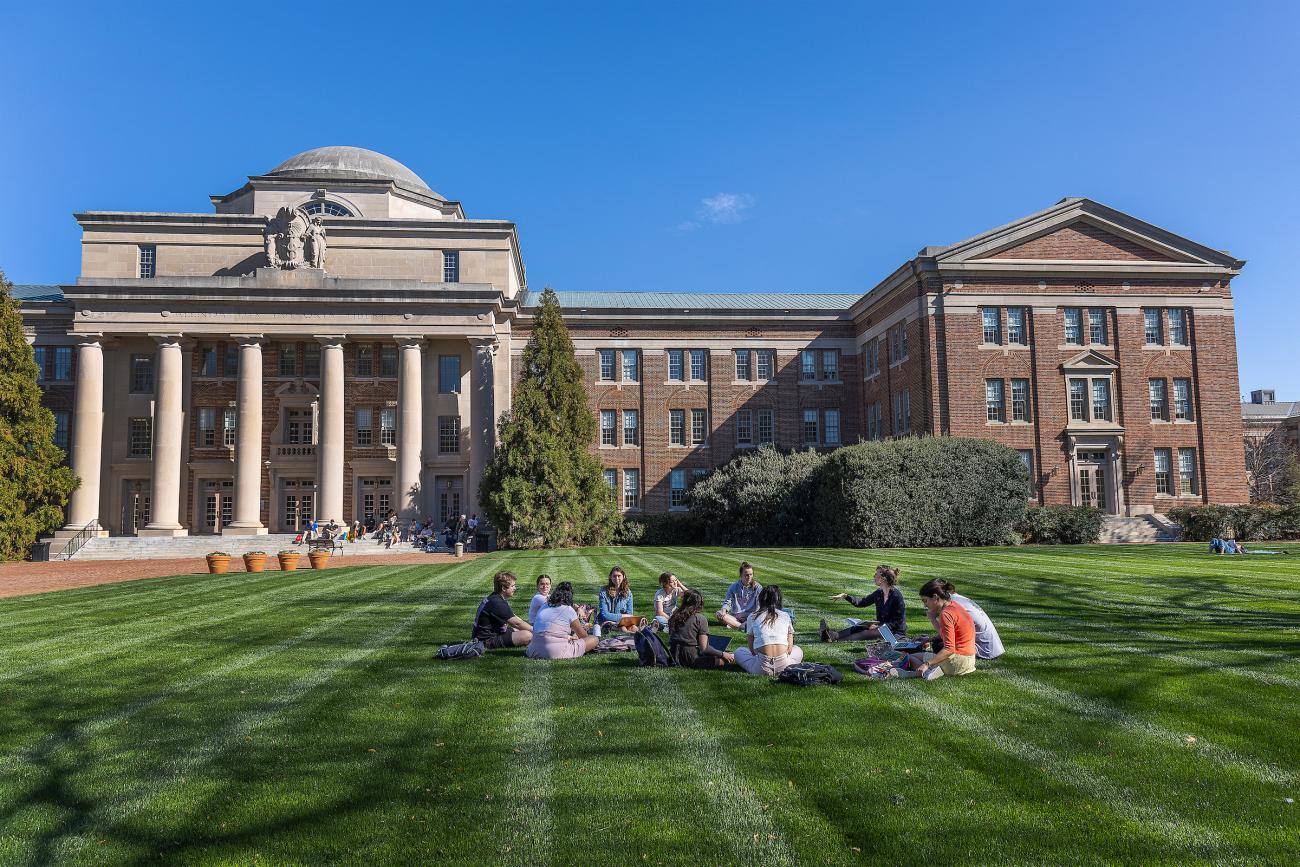Welcome to the ultimate guide to the top small colleges in North Carolina for 2023! If you’re a student looking for a personalized and high-quality education, these institutions are the perfect fit for you.
We’ve scoured the state to bring you the cream of the crop, where you can find a tight-knit community, rigorous academics, and a thriving campus culture.
In this article, we’ll unveil the top 10 small colleges in North Carolina, explore their unique offerings, and provide you with all the information you need to apply and make an informed decision about your academic future. So buckle up and get ready to discover your dream college!

Table of contents
- Why Should You Consider Applying To The Best Small Colleges In North Carolina?
- What Criteria Were Used To Rank The Best Small Colleges in North Carolina?
- How Do I Apply To One Of The Best Small Colleges In North Carolina?
- What are the Tuition and Fees for the Best Small Colleges in North Carolina?
- Are any Scholarships or Financial Aid Available for Students Attending the Best small colleges in North Carolina?
- What Academic Programs are Offered at the Best small colleges in North Carolina?
- How do the Graduation Rates and Job Placement Rates of the Best small colleges in North Carolina compare to other colleges in the state?
- 10 small colleges in North Carolina
- Frequently Asked Questions
- Conclusion
- References
- Recommendations
Why Should You Consider Applying To The Best Small Colleges In North Carolina?
There are several reasons why you should consider applying to the Best Small Colleges in North Carolina:
- Personalized attention: These colleges typically have smaller class sizes. This means students can receive personalized attention from their professors and more one-on-one support.
- Rigorous academics: Despite their small size, these colleges offer a rigorous academic curriculum that can prepare students for a wide range of careers and graduate programs.
- Thriving campus culture: Small colleges often have a tight-knit community and a vibrant campus culture that can foster meaningful friendships, extracurricular activities, and leadership opportunities.
- Affordability: Many colleges offer scholarships, grants, and financial aid to help students pay for their education, making them more affordable than prominent universities.
- Career readiness: These colleges often provide students with hands-on experience, internships, and career counseling to help them build valuable skills and prepare for their future careers.
Applying to one of the 10 Best Small Colleges in North Carolina can provide you with a high-quality education, a supportive community, and a unique college experience that can shape your future.
If you are considering biology in the U.K., read: Best Universities For Biology In U.K. | 2023
What Criteria Were Used To Rank The Best Small Colleges in North Carolina?
The criteria used to rank the top small colleges in North Carolina depend on a variety of factors, including:
- Academic excellence: This included factors such as graduation rates, retention rates, student-to-faculty ratio, and the quality of educational programs and faculty.
- Campus culture: This included factors such as student diversity, campus resources, extracurricular activities, and student engagement.
- Affordability: This included factors such as tuition and fees, financial aid options, and the availability of scholarships and grants.
- Career readiness: This included factors such as career counseling, internship opportunities, and post-graduation job placement rates.
- Student satisfaction: This included factors such as student reviews, surveys, and testimonials about their college experience.
Considering these factors, the top small colleges in North Carolina were ranked based on their overall quality and value for students.
Check out this U.K. university: Best Criminology Universities In U.K. | 2023
How Do I Apply To One Of The Best Small Colleges In North Carolina?
To apply to one of the best small colleges in North Carolina, you can follow these general steps:
Step 1- Research the colleges
Start by researching the colleges that interest you, including their admissions requirements, application deadlines, and academic programs.
Step 2- Submit an application
Typically, you can apply to these colleges through their websites or the Common Application. Make sure to fill out all required fields and submit any necessary documents, such as transcripts, test scores, and essays.
Read this similar article: Small New York NY Colleges In 2023 | Apply Now
Step 3: Pay the application fee.
Most colleges require an application fee ranging from $25 to $100. Some colleges may waive the fee for students who demonstrate financial need.
Step 4- Wait for a decision
Once you submit your application, you’ll need to wait for the college to review it and make a decision. This can take weeks to months, depending on the college and the time of year.
Step 5: Accept an offer.
If you get into a college, you’ll typically have a deadline to accept or decline the offer. Make sure to carefully review the proposal, including any financial aid packages, before deciding.
Each college may have unique application processes and requirements, so check their websites for specific information. Additionally, don’t hesitate to contact the college’s admissions office if you have any questions or need additional support.
Check out: 10 Best Universities in the U.K. for Marketing in 2023
What are the Tuition and Fees for the Best Small Colleges in North Carolina?
The tuition and fees for the top small colleges in North Carolina can vary depending on the school and program. However, according to the College Board, the average tuition and fees for private four-year institutions in North Carolina for the 2021-2022 academic year were $36,830, while the average tuition and fees for public four-year institutions in North Carolina for in-state students were $7,818.
It’s important to note that many of the top small colleges in North Carolina offer scholarships, grants, and financial aid to help students offset the cost of tuition and fees. Additionally, the cost of living in North Carolina can vary by region, so students should also consider the cost of housing, food, and transportation when budgeting for their college education.
Students should research the specific tuition and fees for the colleges they are interested in and contact their financial aid offices for information on available scholarships, grants, and other financial aid opportunities.
Check out: 10 Best Small Engineering Colleges in 2023 | Apply Now
Are any Scholarships or Financial Aid Available for Students Attending the Best small colleges in North Carolina?
Yes, many of the top small colleges in North Carolina offer scholarships, grants, and financial aid to help students offset the cost of tuition and fees. Here are some examples of financial aid options available to students:
Merit-based scholarships
Many colleges offer scholarships based on academic achievement, leadership potential, and other factors. These scholarships can range from a few thousand dollars to full tuition coverage.
Need-based grants
Students who demonstrate financial need may be eligible for need-based grants, which can help cover the cost of tuition and other expenses.
Check out this U.K. university: 10 Best Universities for Criminology in the U.K. | 2023
Work-study programs
Some colleges offer work-study programs that allow students to work part-time jobs on campus to help pay for their education.
Loans
Students may also be eligible for federal or private loans to help cover the cost of tuition and other expenses. However, it’s important to note you must repay the loan with interest, so students should carefully consider their options and borrow only what they need.
It’s essential for students to research the specific financial aid options available at the colleges they are interested in and to fill out the Free Application for Federal Student Aid (FAFSA) to determine their eligibility for federal financial aid. Additionally, students can contact the financial aid offices at their desired colleges for more information on available scholarships, grants, and other financial aid opportunities.
Read this similar article:10 Best Small Colleges in Massachusetts | 2023 Apply Now
What Academic Programs are Offered at the Best small colleges in North Carolina?
The academic programs offered at the top small colleges in North Carolina can vary depending on the school. However, many of these colleges provide a range of undergraduate and graduate programs in a variety of fields, including:
- Business and economics
- Education
- Health Sciences
- Humanities and social sciences
- Natural sciences and mathematics
- Fine arts and performing arts
- Engineering and technology
- Communication and media studies
- Computer science and information technology
In addition to traditional academic programs, many of these colleges offer experiential learning opportunities, such as internships, research projects, and study abroad programs. These programs can provide students with valuable hands-on experience and help prepare them for careers in their chosen fields.
Check out: 10 Best Universities for Biomedical Sciences in the U.K. | 2023
How do the Graduation Rates and Job Placement Rates of the Best small colleges in North Carolina compare to other colleges in the state?
The graduation and job placement rates of the top small colleges in North Carolina are generally excellent and often compare favorably to other colleges in the state. However, it’s important to note that these rates can vary by school and program.
According to the National Center for Education Statistics (NCES), the overall graduation rate for four-year institutions in North Carolina was 62% for full-time students who began their studies in 2014. However, many of the top small colleges in North Carolina have graduation rates that exceed this average.
Additionally, many of the top small colleges in North Carolina have strong job placement rates for graduates. For example, some colleges partner with local employers and offer career services to help students find internships and job opportunities after graduation. It’s essential for students to research the specific job placement rates for the colleges they are interested in and to speak with alums and current students to get a better sense of the career outcomes for graduates.
Check out this U.K. university: 10 Best Universities for Physics in the U.K. | 2023
10 small colleges in North Carolina
Here are brief overviews of the 10 Best Small Colleges in North Carolina in 2023:
#1. Davidson College

Located in Davidson, NC, this highly selective liberal arts college is known for its vital academic programs and commitment to student engagement. Davidson has a student-to-faculty ratio of 8:1 and offers 29 majors and 40 minors.
Read this similar article: BMAT Universities In 2023 | 10 Best BMAT Schools in the U.K.
#2. Duke University
Located in Durham, NC, Duke is a world-renowned research university that offers undergraduate and graduate programs in various fields, including engineering, medicine, law, and the arts and sciences. Duke has a student-to-faculty ratio of 6:1 and ranks among the top universities in the country.
#3. Elon University

Located in Elon, NC, this private liberal arts university is known for its experiential learning opportunities and commitment to engaged citizenship. Elon offers 68 majors and minors and has a student-to-faculty ratio of 12:1.
Check out: 10 Best Small Midwest Colleges In 2023| Apply Now
#4. Guilford College
Located in Greensboro, NC, Guilford is a small liberal arts college focusing on community engagement and social justice. Guilford offers 39 majors and minors and has a student-to-faculty ratio of 9:1.
#5. High Point University
This private university is located in High Point, NC, and offers undergraduate and graduate programs in various fields, including business, education, and the arts and sciences. High Point has a student-to-faculty ratio of 16:1 and a solid commitment to experiential learning.
Check out: 10 Best Private Universities In California| 2023 Apply
#6. Meredith College

In Raleigh, NC, Meredith is a women’s college that offers undergraduate and graduate programs in various fields, including business, education, and the arts and sciences. Meredith has a student-to-faculty ratio of 10:1 and a solid commitment to leadership development and community engagement.
#7. Salem College
Winston-Salem, NC, Salem is a women’s college focusing on the liberal arts and leadership development. Salem offers 28 majors and minors and has a student-to-faculty ratio of 9:1.
Check out this U.K. university: Best Universities For Biology In the U.K. | 2023
#8. Wake Forest University
In Winston-Salem, NC, Wake Forest is a private research university that offers undergraduate and graduate programs in various fields, including business, law, medicine, and the arts and sciences. Wake Forest has a student-to-faculty ratio of 10:1 and a solid commitment to personalized education and community engagement.
#9. Warren Wilson College
Located in Asheville, NC, Warren Wilson is a small liberal arts college focusing on sustainability and social justice. Warren Wilson offers 17 majors and minors and has a student-to-faculty ratio of 9:1.
Read this similar article: Best Criminology Universities In U.K. | 2023
#10. Western Carolina University

Located in Cullowhee, NC, Western Carolina is a public university that offers undergraduate and graduate programs in various fields, including education, business, and the arts and sciences. Western Carolina has a student-to-faculty ratio of 16:1 and a solid commitment to experiential learning and community engagement.
The 10 Best Small Colleges in North Carolina in 2023 offer a range of academic programs and experiential learning opportunities in a supportive and personalized environment. Students who attend these colleges can benefit from small class sizes, engaged faculty, and a strong sense of community.
Check out: Small New York NY Colleges In 2023 | Apply Now
Frequently Asked Questions
To apply to one of the top small colleges in North Carolina, you can visit their websites and follow the application process. Some colleges may require additional documents or essays, so check their specific requirements.
Yes, most of the top small colleges in North Carolina offer scholarships, grants, and financial aid to help students pay for their education. For more information, you can visit their websites or contact their financial aid offices.
The student-to-faculty ratio at the top small colleges in North Carolina ranges from 7:1 to 12:1, meaning students have ample opportunities to interact with their professors and receive personalized attention.
While we don’t provide student reviews or testimonials in this article, you can visit the colleges’ websites or review sites like Niche and College Confidential to read reviews and feedback from current and former students.
Conclusion
There you have it, the top 10 small colleges in North Carolina for 2023! We hope this guide has provided valuable insights and inspiration as you embark on your college journey. These institutions offer a rich academic experience, a tight-knit community, and a unique campus culture that will help you grow and thrive as a student and a person.
Remember, choosing the right college is a crucial decision shaping your future, so take the time to explore your options and find the perfect fit. Don’t hesitate to contact the admissions teams at these colleges to learn more and apply today!
Check out: 10 Best Universities in the U.K. for Marketing in 2023
References
Recommendations
- 10 Best Small Engineering Colleges in 2023 | Apply Now
- 10 Best Universities for Criminology in the U.K. | 2023
- 10 Best Small Colleges in Massachusetts | 2023 Apply Now
- 10 Best Universities for Biomedical Sciences in the U.K. | 2023
- 10 Best Universities for Physics in the U.K. | 2023
- BMAT Universities In 2023 | 10 Best BMAT Schools in the UK



